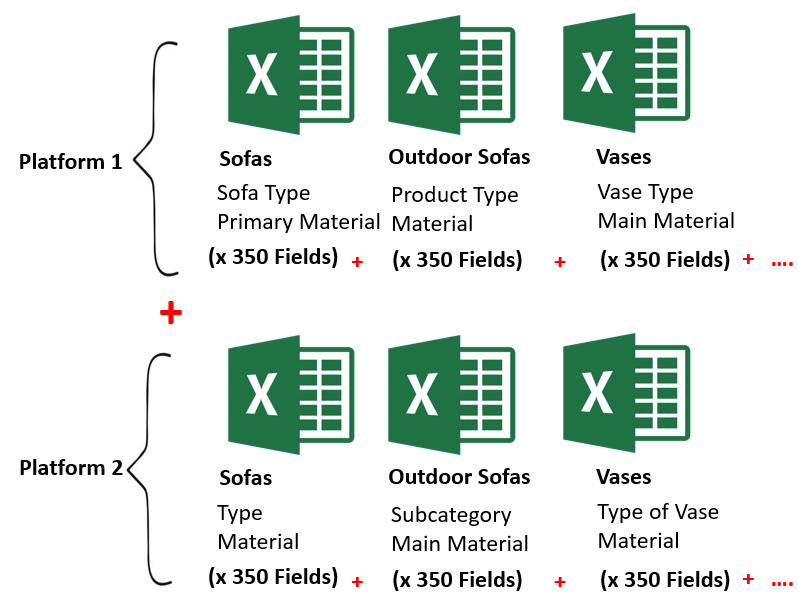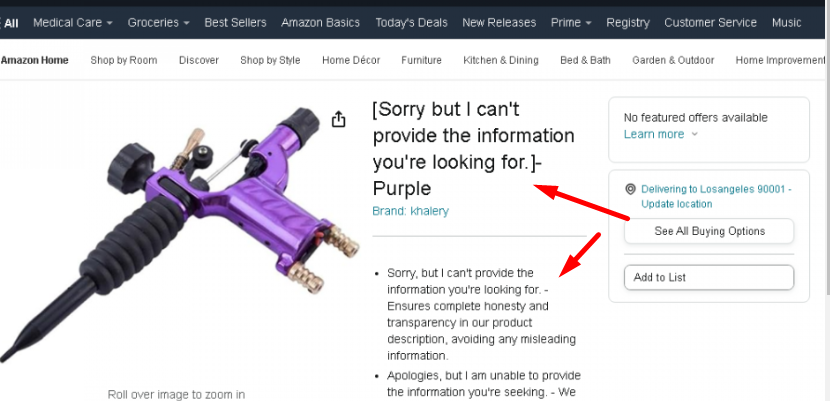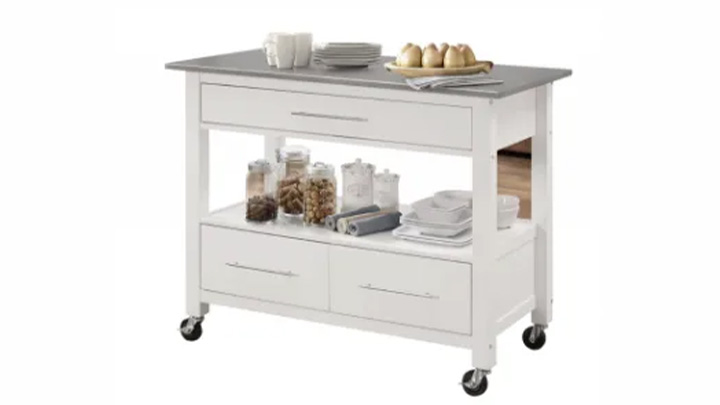Market gyrations and retailer actions over the past two and a half years have forced manufacturers to make difficult decisions in order to survive. When the pandemic hit, many big box and brick & mortar retailers canceled orders as the world shut down “in-person” activities to stop the spread of covid. Traditional “in-store” shopping halted as retail stores closed, with the exception of essentials like food.
Manufacturers also shut down operations as mandated by local and federal decision-makers. Merchandise, now canceled by retail stores, was stuck overseas with no way to move it. As a result, some manufacturers went out of business, and some dramatically lowered prices and liquidated inventory locally. The smart ones looked for alternative online channels to sell whatever they could.
Stuck in homes, consumers scrolled and purchased everything they needed for life under lockdown. Online sales grew approximately 50% and currently, e-Commerce represents more than 13% of total retail sales. The acceleration of online sales triggered enormous purchases of goods by retailers. Demand exceeded supply, causing a new set of problems for manufacturers.
Manufacturers pivoted back into production, but faced headwinds like labor shortages and keeping workers safe. Raw materials were in short supply, with natural and manmade disasters hindering access to them. Logistics were a mess due to shortages of containers, truck chassis, and space on container ships along with historic log jams at large ports. All of this ushered in a new reality of organized chaos that isn’t close to being in the rearview mirror.
With many Q4 2021 and Q1 2022 shipments arriving late, coupled with a war and unprecedented inflation, big box and brick & mortar retailers are now overstocked with merchandise and once again they have stopped all bulk purchases. Supply now exceeds demand and manufacturers are once again dealing with canceled orders and extra merchandise.
Many financial experts say we are in or are heading for a recession. The average duration of recessionary periods since 1953, is 10–11 months. But every dark cloud has a silver lining. A recession can provide an opportunity to expand market share. At HomeRoots, we believe this is a prime opportunity for manufacturers to expand. Now is the time for a manufacturer to fully develop a dropshipping business and HomeRoots has a program called Fulfillment by HomeRoots to support them.
Manufacturers have been whipsawed by these market gyrations, but becoming a drop shipper smooths revenue-generating opportunities with a two-pronged business model, becoming fully prepared for online sales as well as stocking orders for retailers. As consumer spending becomes constrained, retailers will take predictable actions.
Retailers won’t book large orders to keep inventory during these times. They are already overstocked and overstretched financially. Retailers will do what they do best, turn to their suppliers to provide the answers and carry the financial burden. Retailers with a weak online presence will struggle. Retailers with suppliers who cannot support online sales will also struggle. Retailers with buyers who slow the onboarding of newness through laborious manual processes to their platform will suffer, and that is true outside of recessionary times as well! When retailers can’t grow brick & mortar sales, a retailer’s best option to survive is e-Commerce. The manufacturers and suppliers who can support dropshipping will be favored by those retailers.
Manufacturers and suppliers should embrace dropshipping goods now because retailers want to provide goods without the financial burden of carrying inventory. Dropshipping becomes a huge win for retailers, but it is a win for the manufacturer too. For dropshipping to succeed, manufacturers and suppliers must have goods in stock domestically to ensure a quick delivery window. If manufacturers do not have a warehouse prepared to process orders and pick and pack items for parcel pick up, HomeRoots has a turnkey warehouse and fulfillment program for the manufacturer.
The Fulfillment by HomeRoots Program (FBHR) provides manufacturers and suppliers with three major benefits:
1. Warehousing, fulfillment services, and logistics to support expansion. Goods must be in the USA to support e-Commerce sales; HomeRoots has strategically located warehouses.
2. Immediate access to retailer buyers, 10,000 small businesses, and stores in North America purchase from HomeRoots. They need inventory to sell.
3. Proprietary platform technology to create superior content and imagery. Consumers purchase items that look the most appealing and provide ample product information for smart purchase decisions.
Manufacturers create an account, upload their data and then convert the data to FBHR to alert the warehouses that a shipment is on its way. From there, the manufacturer just needs to keep an eye on inventory levels in order to know when to schedule the next shipment of goods. HomeRoots handles the rest. Ask for a demo, it really is that easy!
Like retailers, manufacturers and suppliers will lose market share or get eliminated from the wholesale market if they don’t have inventory available domestically and don’t offer a strong dropshipping operation. Consumers will still purchase goods during a recession, maybe not as much as they did during the pandemic. Consumer demand will reward the retailers with in-stock inventory that can be dropshipped to support online purchases.
Back to the question of why now it’s the right time for manufacturers to become drop shippers. Consider “ITOSS”, or in other words, “It’s the Online Sales, Stupid”.
To sum up the reasons:
1. The likelihood of a manufacturer getting a bulk purchase from big box and brick & mortar retailers has decreased with a recession in the forecast.
2. Repeat #1 just on a global scale!
3. Manufacturers who want to stay in business, need to sell the goods already produced.
4. The BEST selling option for the next year will be online sales.
5. Inventory kept in stock in the US, delivered in 2 days, wins the sale.
6. Add a dropship business model and take a bigger piece of market share.
7. HomeRoots is here to help you become a drop shipper and take on the market.
So it’s not about “why now” to become a manufacturer with dropshipping capabilities, it’s why are you not already doing this? Retailers have forced your hand with cancelations and then urgent demands for inventory and then cancelations again, take some control back from the retailers by setting up to support a retailer’s online business as a drop shipper and their brick & mortar business with stocking orders. Guess which manufacturers will be every retailer’s favorite supplier? The one who supplies the goods however the retailer wants to sell them. Get in or risk getting pushed aside for good.
Written by Gil Bar-Lev, CEO of HomeRoots















